Filter by
Found 12368 from your keywords: subject="Delegation and Discre...
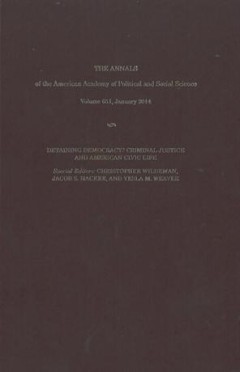
The ANNALS of the American Academy of Political and Social Science, Volume 67…
- Edition
- -
- ISBN/ISSN
- 00027162
- Collation
- -
- Series Title
- -
- Call Number
- -
- Edition
- -
- ISBN/ISSN
- 00027162
- Collation
- -
- Series Title
- -
- Call Number
- -

Administrative Science Quarterly, Volume 63, Number 2, JUne 2018
- Edition
- -
- ISBN/ISSN
- 00018392
- Collation
- -
- Series Title
- -
- Call Number
- -
- Edition
- -
- ISBN/ISSN
- 00018392
- Collation
- -
- Series Title
- -
- Call Number
- -
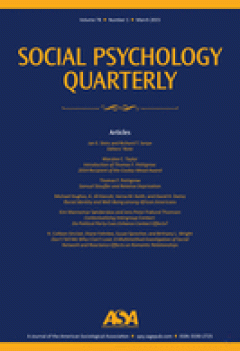
Social Psychology Quarterly, Volume 81, Number 2, June 2018
- Edition
- -
- ISBN/ISSN
- 01902725
- Collation
- -
- Series Title
- -
- Call Number
- -
- Edition
- -
- ISBN/ISSN
- 01902725
- Collation
- -
- Series Title
- -
- Call Number
- -

Politics and Gender, Volume 14, Number 3, September 2018
- Edition
- -
- ISBN/ISSN
- 1743923X
- Collation
- -
- Series Title
- -
- Call Number
- -
- Edition
- -
- ISBN/ISSN
- 1743923X
- Collation
- -
- Series Title
- -
- Call Number
- -

Politics & Gender, Volume 14, Number 2, June 2018
- Edition
- -
- ISBN/ISSN
- 1743923X
- Collation
- -
- Series Title
- -
- Call Number
- -
- Edition
- -
- ISBN/ISSN
- 1743923X
- Collation
- -
- Series Title
- -
- Call Number
- -

Journal of Democracy, Volume 29, Number 3, July 2018
- Edition
- -
- ISBN/ISSN
- 10455736
- Collation
- -
- Series Title
- -
- Call Number
- -
- Edition
- -
- ISBN/ISSN
- 10455736
- Collation
- -
- Series Title
- -
- Call Number
- -

Journal of Democracy, Volume 29, Number 2, April 2018
- Edition
- -
- ISBN/ISSN
- 10455736
- Collation
- -
- Series Title
- -
- Call Number
- -
- Edition
- -
- ISBN/ISSN
- 10455736
- Collation
- -
- Series Title
- -
- Call Number
- -

Journal of Democracy, Volume 29, Number 1, January 2018
- Edition
- -
- ISBN/ISSN
- 10455736
- Collation
- -
- Series Title
- -
- Call Number
- -
- Edition
- -
- ISBN/ISSN
- 10455736
- Collation
- -
- Series Title
- -
- Call Number
- -

Gender & Society, Volume 32, Number 3, June 2018
- Edition
- -
- ISBN/ISSN
- 08912432
- Collation
- -
- Series Title
- -
- Call Number
- -
- Edition
- -
- ISBN/ISSN
- 08912432
- Collation
- -
- Series Title
- -
- Call Number
- -
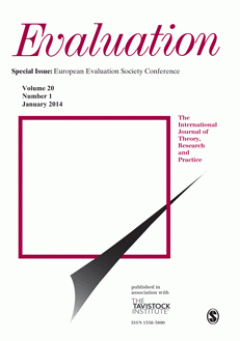
Evaluation, Volume 24, Number 3, July 2018
- Edition
- -
- ISBN/ISSN
- 13563890
- Collation
- -
- Series Title
- -
- Call Number
- -
- Edition
- -
- ISBN/ISSN
- 13563890
- Collation
- -
- Series Title
- -
- Call Number
- -
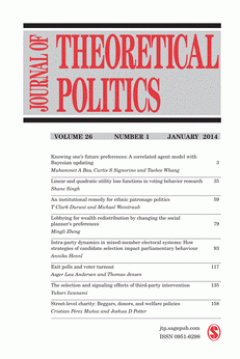
Journal of Theoretical Politics, Volume 30, Number 3, July 2018
- Edition
- -
- ISBN/ISSN
- 09516298
- Collation
- -
- Series Title
- -
- Call Number
- -
- Edition
- -
- ISBN/ISSN
- 09516298
- Collation
- -
- Series Title
- -
- Call Number
- -

Journal of Theoretical Politics, Volume 30, Number 2, April 2018
- Edition
- -
- ISBN/ISSN
- 09516298
- Collation
- -
- Series Title
- -
- Call Number
- -
- Edition
- -
- ISBN/ISSN
- 09516298
- Collation
- -
- Series Title
- -
- Call Number
- -
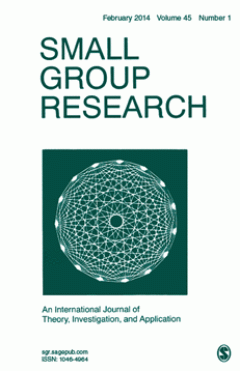
Small Group Research, Volume 49, Number 3, June 2018
- Edition
- -
- ISBN/ISSN
- 10464964
- Collation
- -
- Series Title
- -
- Call Number
- -
- Edition
- -
- ISBN/ISSN
- 10464964
- Collation
- -
- Series Title
- -
- Call Number
- -

Small Group Research, Volume 49, Number 5, October 2018
- Edition
- -
- ISBN/ISSN
- 10464964
- Collation
- -
- Series Title
- -
- Call Number
- -
- Edition
- -
- ISBN/ISSN
- 10464964
- Collation
- -
- Series Title
- -
- Call Number
- -

Small Group Research, Volume 49, Number 4, August 2018
- Edition
- -
- ISBN/ISSN
- 10464964
- Collation
- -
- Series Title
- -
- Call Number
- -
- Edition
- -
- ISBN/ISSN
- 10464964
- Collation
- -
- Series Title
- -
- Call Number
- -
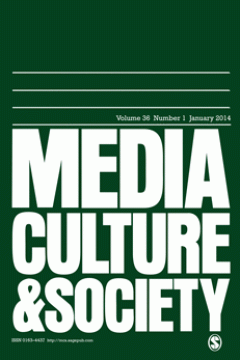
Media Culture & Society, Volume 40, Number 5, July 2018
- Edition
- -
- ISBN/ISSN
- 01634437
- Collation
- -
- Series Title
- -
- Call Number
- -
- Edition
- -
- ISBN/ISSN
- 01634437
- Collation
- -
- Series Title
- -
- Call Number
- -

Media Culture & Society, Volume 40, Number 4, May 2018
- Edition
- -
- ISBN/ISSN
- 01634437
- Collation
- -
- Series Title
- -
- Call Number
- -
- Edition
- -
- ISBN/ISSN
- 01634437
- Collation
- -
- Series Title
- -
- Call Number
- -
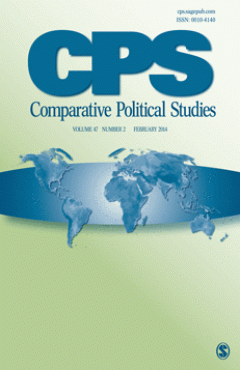
Comparative Political Studies, Volume 38, Number 8, July 2018
- Edition
- -
- ISBN/ISSN
- 00104140
- Collation
- -
- Series Title
- -
- Call Number
- -
- Edition
- -
- ISBN/ISSN
- 00104140
- Collation
- -
- Series Title
- -
- Call Number
- -
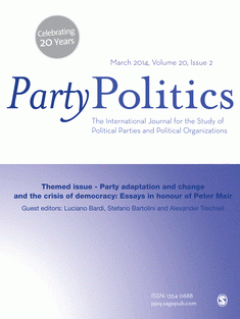
Party Politics, Volume 24, Issue 2, March 2018
- Edition
- -
- ISBN/ISSN
- 13540688
- Collation
- -
- Series Title
- -
- Call Number
- -
- Edition
- -
- ISBN/ISSN
- 13540688
- Collation
- -
- Series Title
- -
- Call Number
- -
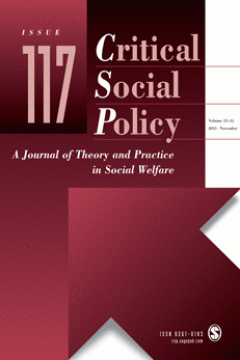
Critical Social Policy, Volume 38, Number 4, November 2018
- Edition
- -
- ISBN/ISSN
- 02610183
- Collation
- -
- Series Title
- -
- Call Number
- -
- Edition
- -
- ISBN/ISSN
- 02610183
- Collation
- -
- Series Title
- -
- Call Number
- -
 Computer Science, Information & General Works
Computer Science, Information & General Works  Philosophy & Psychology
Philosophy & Psychology  Religion
Religion  Social Sciences
Social Sciences  Language
Language  Pure Science
Pure Science  Applied Sciences
Applied Sciences  Art & Recreation
Art & Recreation  Literature
Literature  History & Geography
History & Geography